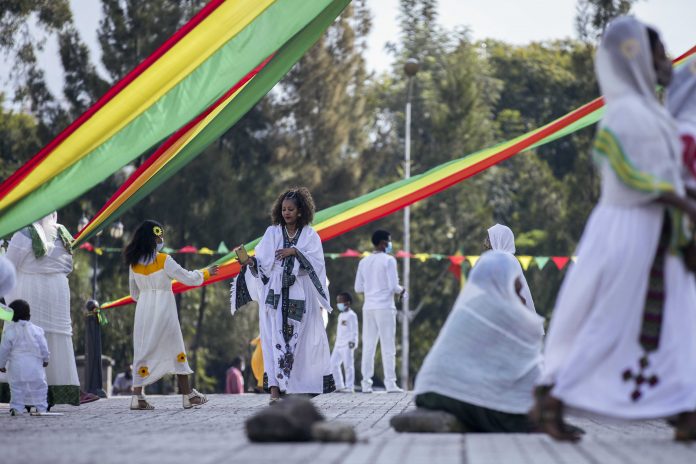Ethiopians on Friday welcomed what many people around the world might like to see: the beginning of a new year.
Following a calendar seven years behind the Gregorian one used by much of the world, Ethiopians marked the beginning of 2013.
“The 2012 Ethiopian calendar is a year where we went through a lot. There was a big punishment as a result of (God’s) wrath,” said Emkulu Yiheyis, an Ethiopian Orthodox priest. “But it was not as big as we thought it would be, because of God’s will it was easier, and we are here now.
“We were largely protected from going through the horror we saw elsewhere.”
Coronavirus cases only in recent weeks have begun to rise rapidly in Africa’s second most populous country. Ethiopia had more than 62,000 confirmed cases as of Friday, including nearly 1,000 deaths. The government let a state of emergency expire over the weekend, opening the way for more public gatherings.
On Friday, people prayed and sang at Bole Medhane Alem Church in the capital, Addis Ababa.
“The coronavirus is a huge challenge not only to our less developed nation but also to all around the world,” said one churchgoer, Girma Megenta. “In order to protect ourselves, all of us need to work together. So that our country is out of this bad situation, we need to teach others to raise awareness and take care of ourselves.”
Church services were more subdued than usual, but in the busy open-air markets of the capital, many people were going about their lives as before. Some went without face masks.
“What we are seeing here is very puzzling,” said one shopper, Yohannes Adane. “I say this because the virus is spreading and its victims are piling up. … But around this area, protections against the disease are low. I advise for people to be very careful and to keep their distance. But as you can see, people are acting as if there is no coronavirus.”




















